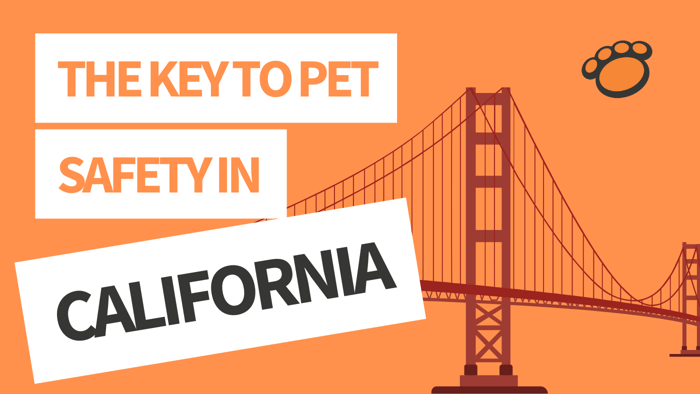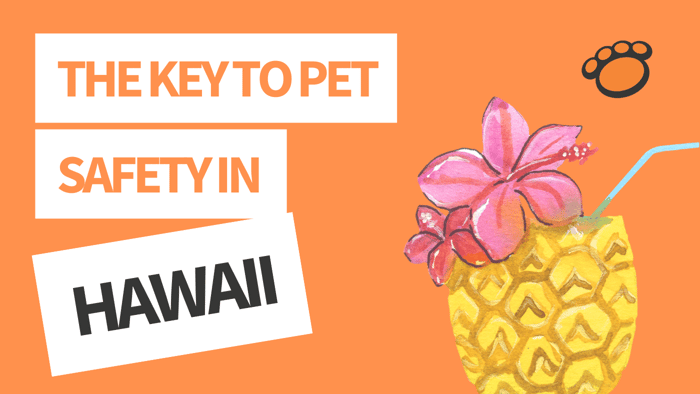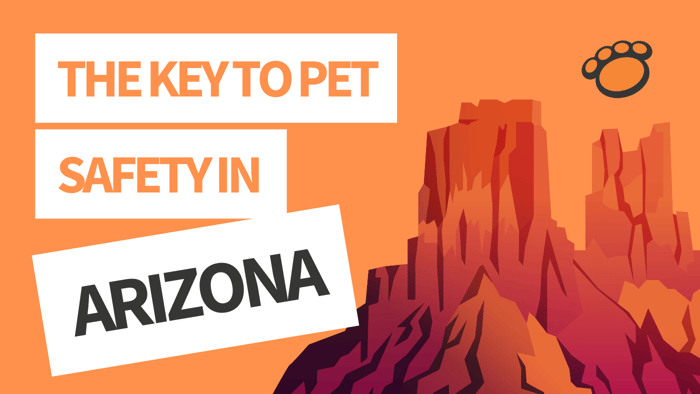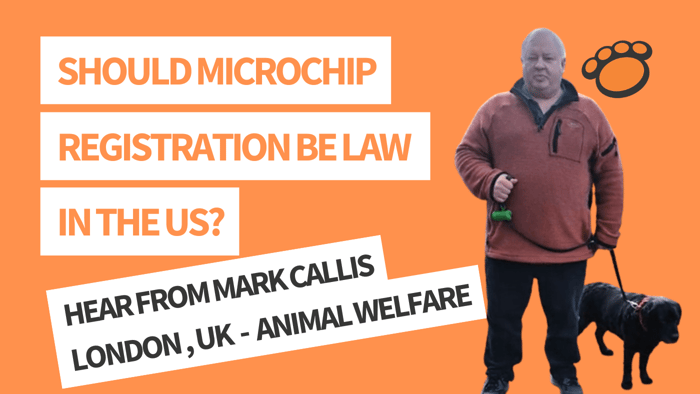Microchip Registration - California
Should I microchip and register my pet?
Microchipping is a critical part of pet safety, serving as a permanent identification method for your dog or cat. California has made significant strides to ensure that pets are microchipped, with some counties and cities implementing strict regulations to protect pets and ensure reunification with their owners. However, as with all microchipping laws, the key step to pet safety is registration. Without proper registration on a database like Petkey’s, the microchip may be ineffective in reuniting lost pets with their families.
Why? Because the registration links your contact details to the microchip.

What This Means for Pet Owners and Their Pets
The Role of Microchips
A microchip is a small device implanted just under a pet’s skin, no bigger than a grain of rice, containing a unique identification number. When scanned by shelters or veterinarians, this number links to a database that holds the pet owner’s contact details—provided the information is registered and kept up-to-date. In California, certain jurisdictions mandate that pets be both microchipped and registered with a database like Petkey, before being released from shelters or animal control agencies.
Microchips are not GPS trackers.
Mandatory Microchipping and Registration
As of September 2020, California has implemented state-wide regulations that require animal control agencies to microchip pets before they are returned to their owners or adopted. This law ensures that pets are properly identified, and can be reunited if the pet is ever lost or goes missing.
Owners must also ensure that the microchip is registered with a database, like Petkey, to make the microchip truly effective. Without registration, even the most advanced microchip technology becomes useless in tracking a lost pet as there are no owner contact details linked to it.
California’s Microchipping Regulations by County
Several counties and cities in California have implemented strict regulations to improve pet reunification rates:
- Riverside County: Any animal agency cannot release, sell, transfer, adopt, or rescue any dog or cat without first microchipping the pet and ensuring its registration with a registry service like Petkey.
- Ventura County: Similar to Riverside, Ventura County mandates microchipping and registration before any pet can be adopted, sold, or transferred.
- Menifee, CA: All dogs and cats over 4 months of age must have a microchip implanted, and the owner must register the chip.
- Canyon Lake, CA: A similar mandate exists here for all pets over 4 months of age to be microchipped and registered.
- Corona, CA: In Corona, animal control agencies are required to ensure microchipping and registration for any dog or cat adopted, transferred, or sold. All other pet owners are strongly encouraged to microchip and register their pets after 8 weeks of age.
- Tulare, CA: Any dog adopted or rescued from an animal agency must be microchipped and registered with the owner’s details.
These laws, implemented across California, aim to significantly reduce the number of unclaimed pets in shelters, ensuring that lost pets can be quickly reunited with their families.
Financial and Emotional Implications
While microchipping and registration may incur some costs, these are far less than the emotional toll and financial burden of losing a pet. A registered microchip maximizes the chances of reuniting with your pet, and for pet owners, it’s a small investment for invaluable peace of mind. Register your pet with Petkey today,
For Pets: A Lifeline Lost
If a pet’s microchip is not registered, it’s as though the chip doesn’t exist. Shelters cannot use the chip to contact the owner, which leads to longer stays at shelters or worse, pets never being reunited. In California, where counties that have microchipping requirements, registration makes the chip a lifeline for pets, offering the best chance of getting them home.
Closing the Gap
Microchipping is not a one-step process—it’s a two-part responsibility. Pet owners must:
- Have the microchip implanted.
- Register the chip with a trusted service like Petkey and update contact details regularly.
California's regulations are progressive, and we argue that to ensure every pet has the best chance of returning home, mandatory registration alongside mandatory microchipping should be a universal requirement across all counties and even states.
The laws reflect a strong commitment to pet safety, but the final responsibility falls to the pet owner. By registering their pets' microchips, owners can rest easy knowing that their pets can always find their way back to them.
Visit Petkey to learn more about microchip registration and recovery services.




